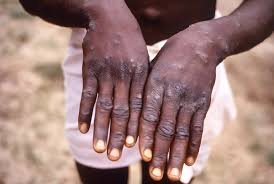The Nigeria Centre for Disease Control and Prevention (NCDC) announced on Thursday that Nigeria has reported 39 confirmed cases of mpox and no fatalities across 33 states and the Federal Capital Territory since the beginning of 2024. NCDC Director General, Dr. Jide Idris, made this disclosure at a press conference in Abuja.
Additionally, Dr. Idris revealed that Nigeria has recorded 5,951 suspected cholera cases and 176 deaths across 36 states and the FCT as of August 11, 2024.
This announcement comes as the Africa Centre for Disease Control declared a public health emergency due to the growing mpox outbreak on the continent.
The outbreak, which has affected several African countries, particularly the Democratic Republic of Congo, has resulted in 2,863 confirmed cases and 517 deaths across 13 African countries in 2024 alone.
A new viral strain, first detected in September 2023, has spread beyond the Democratic Republic of Congo, fueling concerns about the growing outbreak.
“In Nigeria, cumulatively, a total of 39 confirmed cases and zero deaths have been recorded across 33 States + FCT, from the beginning of the year 2024. Bayelsa (five), Cross River (five), Ogun (four), Lagos (four), Ondo (three), and Ebonyi (three) lead the pack.
“Noting the significant concern of the ease of cross-border transmission, this press conference is part of the effort to intensify our coordination and communication with stakeholders to manage the spread of the virus and prevent disease importation,” the NCDC boss said.
Mpox is a rare viral disease that is transmitted from animals to humans and is endemic in several African countries, particularly in the tropical rainforests of Central and West Africa.
The exact source of the virus is unknown, but rodents, squirrels, and monkeys are suspected to play a role in transmission. The virus can spread through direct contact with infected animals’ blood, body fluids, skin, or mucosal lesions, as well as through human-to-human contact with an infected person or contaminated materials like clothing or bedding.
Symptoms of the disease include fever, headache, body aches, weakness, swollen lymph nodes, and a rash, which typically appears on the face and spreads to the body, with the face and palms/soles being most affected. The rash can also occur in and around the genitals, making contact during sex another mode of transmission.
The National Mpox Technical Working Group, a multi-sectoral body within the Nigeria Centre for Disease Control and Prevention (NCDC), continues to coordinate response activities to address the outbreak.



